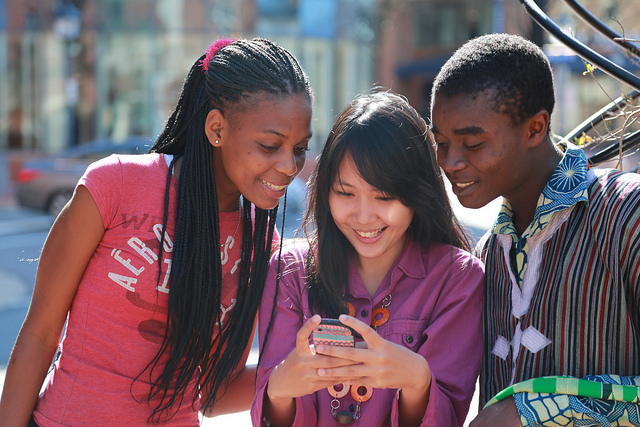
As is common for someone as interested in social media and education as I am, I regularly come across articles and studies such as the one referenced in this article on CNN. And the first thing that comes to mind is:
Well, DUH!
Because these results are not surprising at all! I do not disagree, nor would I suggest that the study is inaccurate. I’m sure that the results they experienced are very valid in respect to what they were testing for. However, in my mind, there is a huge point being missed here. And to me, it’s painfully obvious.
Yes, phones and mobile devices can be a distraction. It is not surprising that if we ban them, traditional testing results will improve. But that’s also the problem. We keep measuring the disruption of mobile devices against a well-established, yet dated paradigm. We are taking a new technology, and superimposing its influence on a system that is otherwise long in the tooth.
Murphy and Beland said their study doesn’t mean phones and other technology can’t be used to boost learning.
In my view, comparing a new technology to ‘the way we have always done things’ is terribly myopic. I can imagine that when moving pictures were invented, they were seen as a foolish distraction from the enjoyment of live theatre. The invention of the printing press was heralded as a foolhardy waste of time, folly that would take away from the skill and craft of hand-lettered books. In this light, perhaps we should be more visionary in our thinking around connectivity and testing. Here’s a common question I hear from many of my forward thinking contemporaries in the field of education:
“If a test answer can be found on the internet, is it worth having on an exam in the first place?”
We live in a connected era. Not soon, but RIGHT NOW. In many countries, students are coming to class with a whole world of information that can be accessed through a device in their pockets. Their social network is on there. Their entertainment is on there, in the form of games and videos. And it’s very possible to have their educational tools on there. It is an always-on, instant connection to a literal world of information. So why are we still doing studies that are measured by traditional test results? Is this study suggesting that the THE WORLD IS A DISTRACTION? Do we really want to force our children to focus on boring and outdated models of memorization and regurgitation?
Now before you go thinking I’ve got pedagogical blinders on, I will admit that I do believe that there is still a place for dedicated, concentrated study. Particularly as they mature, students need to be taught how to deal with the issue of digital distraction. They need to be taught effective models of digital citizenship, so that they are able to discern for themselves how to integrate connectivity into their lives, and most importantly, when. Let’s move forward with technology, not bury it. Let’s instil a new work ethic in ourselves, one where we not only have a connected device in our pockets, but that we know how pedagogically valuable it can really be! We don’t have to send students down to the library anymore to access a massive tome called an encyclopedia.
Why are we banning one of the most exciting advances in the history of education? I don’t know. But the sooner we all realize this, the sooner we can collectively create some really exciting models for learning!
Original CNN article here: http://money.cnn.com/2015/05/18/technology/smartphones-schools-ban/index.html
Original Study found here: http://faculty.bus.lsu.edu/papers/pap15_03.pdf